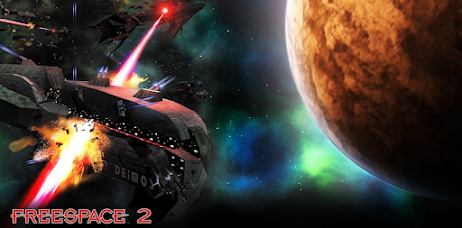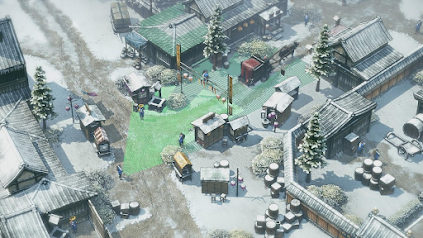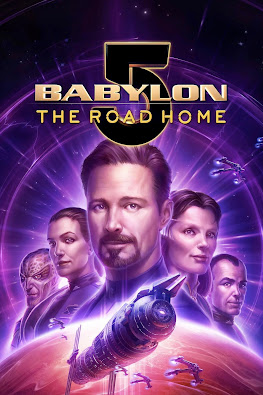In surprising and disappointing news, the video game studio Volition has been shut down after thirty years in operation. During that time, Volition were responsible for some of the most beloved titles and series in those respective eras. The decision to shut down came after the disappointing performance of their latest game, a reboot of their Saint's Row series, and their acquisition by Swedish mega-company Embracer Group.
Volition started life in 1993 as Parallax Software Corporation, where they started work on a game called Inferno. After various deals with publishers fell through, they teamed with Interplay to release the game, now retitled Descent, in 1995. The game was immediately noteworthy for its 3D graphics and its fast-paced combat. Alongside the following year's Quake, the game became a testbed for 3D graphics cards. The game was quickly followed by Descent II (1996).
The company rebranded itself as Volition and released its space space combat simulator Descent: Freespace - The Great War (aka Conflict: Freespace - The Great War in some territories) in 1998, to immense critical acclaim. The game was praised for taking on the X-Wing and Wing Commander series and beating them both at their own game. They followed up on the game with the massively-praised Freespace 2 (1999), widely regarded even today as the single finest space combat simulator of all time. Unfortunately, a cutting of content, budget issues, no marketing and the collapse of the space combat market (which also adversely affected the same year's X-Wing: Alliance) led to the game being released with relatively little fanfare and extremely disappointing sales. Freespace 2 would go on to enjoy an extremely long tail in sales and a vibrant modding scene that continues to this day.
In 2000 Volition released Summoner, a well-received action RPG based around characters recruiting monsters they could release into combat. As part of the marketing campaign, Volition teamed with the comedy group Dead Alewives to create a Dungeons & Dragons-themed comedy video, in which characters from both Summoner and the in-development Red Faction team up to play D&D. The video was an early memetic success, and was also used to tempt video gamers to try out the then-newly released 3rd Edition of Dungeons & Dragons itself. Lines like, "Where is the Mountain Dew?" and "I attack the darkness!" occasionally crop up in tabletop games to this day. Summoner 2 followed in 2002.
In 2001 Volition released Red Faction, a first-person shooter set on Mars. The game was noteworthy for its destructible terrain and scenery, with players able to blast through walls to create alternate paths through maps. The game was a huge, smash hit for Volition and was followed by three sequels: Red Faction II (2002), Red Faction: Guerrilla (2009) and Red Faction: Armageddon (2011).
In 2004 Volition released their first and only licensed game, The Punisher (2004), which saw Thomas Jane reprise his role as Frank Castle from the film of the same name.
In 2006 Volition made their biggest gamble by deciding to take on Rockstar Games and the Grand Theft Auto series. Volition's equivalent series, Saint's Row, leaned into GTA's ruder, wilder and more insane side, although not quite to start with. Saint's Row (2006) and Saint's Row 2 (2008) at least nominally focus on the gritty underworld crime dealings of the 3rd Street Saints, but become more focused on the doings of crazy characters like Johnny Gat (Daniel Dae Kim) as the series progressed. By Saint's Row: The Third (2011) the series had become a satire of both the GTA format and the glorification of criminal excess, with the game focusing on the Saints becoming a media brand and empire. Saint's Row IV (2013) saw the Saints take over the White House and fight to save Earth from aliens who had conquered the planet and effectively digitised it, with the Saints fighting inside a computer programme which gave them superpowers. Saint's Row: Gat Out of Hell (2015) saw the Saints going to Hell to fight Satan, as you do.
Aware that they had maxed out the viewer disbelief of the series, Volition decided to first create a side-game only nominally set in the same universe, Agents of Mayhem (2017) and then a full reboot of the series, relocating the game to a new city with a new gang and more grounded tone, in the annoyingly-named Saint's Row (2022). Neither game caught gamers' imagination, with the reaction to Saint's Row (2022) being particularly hostile due to the abandoning of previous fan-favourite characters and storylines.
Embracer Group acquired the studio in 2018, but after the initial release and disappointing reception to Saint's Row (2022), they rotated management and oversight of the studio to another subsidiary, Gearbox. As a result of declining revenues and debates over where to take the studio next, it was then decided to shutter the studio permanently.
Sad news. Descent, Freespace, Red Faction, Summoner and Saint's Row are all very worthy franchises, with excellent games and some great ideas circulating around them. Volition were never afraid to take on the big boys and win, and their no-holds-barred attitude was refreshing in an industry that all too often plays it safe. Unfortunately, it seems their downfall was kowtowing to corporate requirements to be safe and predictable, with Saint's Row (2022) not being a bad game, just a redundant one once they abandoned the very thing that set them apart, their absurdist side and idiosyncratic sense of humour.
Hopefully the staff at Volition will find new roles, and Embracer will let some of their franchises live again in new titles that don't completely miss the point of the originals.











